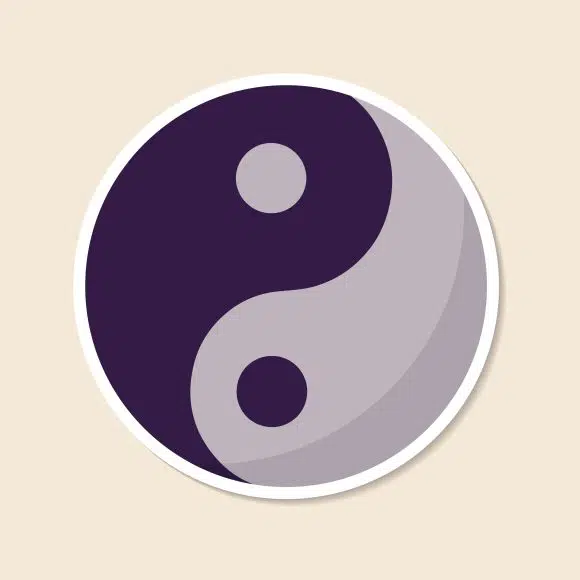As women, we are pressured to keep our figures intact and the world around us supports our desire to be thin and svelte. At the same time, we are watching our bodies change – most of which is beyond our control. Midlife hormonal changes take precedent to our old ways of eating what we want and being able to exercise a few times and “work it off”. Our mind and body are in conflict and there is no sense of balance between the two. In addition, the images we see in the media feed our desire to keep youthful and fight creating a healthy state of balance.
For the past 23 years I have been working in the field of Traditional Chinese Medicine. TCM looks at our body (and our world) from a viewpoint of balance. It is the goal of TCM to support our body in achieving a healthy state of balance. Balance does not mean perfection. We are conditioned to think of the perfect body as the images that we see in the media. In TCM, balance means a harmonious way of feeling, being and thinking. Everybody (and body) has their own natural state of balance and every body’s balance is different. My balance is different than your balance. I remember once, in my early days of acupuncture school, some of the senior students telling me that, after learning about TCM, I would “never look at my body the same way”. And they were right!
TCM offers a very holistic and objective way to look at our body.We look at the body through a diagnositc lens we call the eight perimeters. The eight perimeters are just that – perimeters for us to look at our body and where we might be out of balance. When our body is in a state of balance, we feel good. By making comparisons, we determine areas in our body that we may need to strengthen as well as areas in our body that we can “let some steam out”.
The first of these perimeters is to differentiate between deficiency vs. excess. Certain symptoms in our body we may consider deficient. These include feeling fatigued, lethargic, difficulty taking off excess weight, feeling cold. Other symptoms may be considered excess. These can include irritability, headaches, pain, and insomnia. By paying attention to how our body feels on a day to day basis, we can begin understand areas we need to strengthen and areas we need to reduce.
The second differentiation is hot vs. cold. Some women in midlife feel hot all the time. They may have hot flashes, night sweats and vaginal dryness. Other heat signs may include high blood pressure, irritability and being short fused. Other women in midlife may feel cold, have a lowered sexual drive and urinate frequently and during the night. Oftentimes we can vacillate between the two.
The third differentiation is interior (inside) vs. exterior (outside). I like to use this differentiation within myself to see if how I think about myself on the outside (fat, thin, ugly, attractive) is the same as how I am feeling on the inside. For example, I may have eaten a late meal and feel bloated the next day. In these situations, I may find myself (though less and less) not feeling good about how I look. As women, we are pressured to focus on how we feel and look on the outside without the emphasis on how we may feel on the inside. We also don’t realize the consequences. We don’t pay attention to signals our body may be telling us when we are not feeling right. We may overly focus on how we feel on the outside and ignore important health symptoms that are signaling us on the inside. We have lost that sense of balance
The last differentiation is the familiar differentiation between yin and yang. Yin and yang symbolizes balance. Yin and yang is the most general of all the differentiations and can also be considered a summary of the others. Using the principles of yin and yang can help us understand where our body is out of balance and what we can do to get our body in a healthy state of balance. For example, we may be feeling cold, fatigued and have difficulty loosing weight. These symptoms tend to be yang (or cold) symptoms. We could also be hot, experience vaginal dryness and have dry skin. These symptoms tend to be yin symptoms. We may be too hard on ourselves or we may let ourselves get away with too much. We may dwell on the negative and not focus enough on the positive. We may be influenced too much by the outer world without strengthening and building our inner world.
As a woman who is the magic of her midlife, I know the importance of understanding where my body, mind and spirit is out of balance and work diligently to find that place if balance within myself. I rely less and less on the influences of the outer world and more on the influences of TCM and my inner knowing about what is best for me. I encourage you to do the same.


Leave a Reply